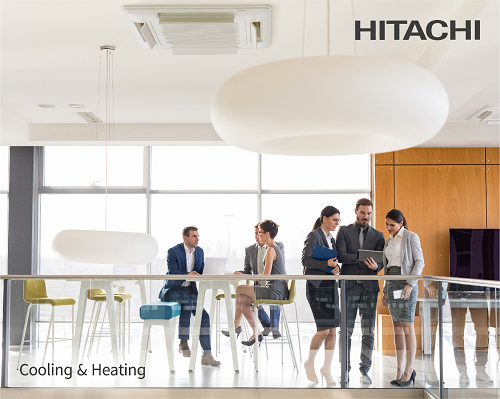|
|||
| Industry News | <Search <Archives <eBulletin Next> | ||
March 7, 2022 Hong Kong's Path to a Sustainable City: Smart HVAC Systems  Hong Kong is one of the world’s most building-dense cities, with over 100,000 residents per square km. As the city embarks on its mission of becoming carbon neutral by 2050, the strategic management of its 42,000 buildings will be a key factor in cutting emissions. It’s a challenge that nations and cities worldwide are grappling with: how to give building operators durable solutions into their new-build projects. Smart HVAC solutions have proven to be effective ways cities can tackle that challenge. Here are 5 ways smart HVAC systems can help cities like Hong Kong achieve their sustainability goals. 1. Smart HVAC reduces energy use in large buildings The HVAC system of a typical building accounts for between 40% and 70% of total electricity consumption. Traditional air conditioning equipment is so energy-intensive because of the complex process of evaporators, condenser coils and compressor pumps working in coordination to pump heat from indoors to outdoors. Smart HVAC solutions tackle the HVAC equation piece-by-piece by using sensors and algorithms to identify inefficiencies in system. They give building operators real-time data to manage air conditioner more holistically. A smart HVAC system can save a commercial building between 30 to 50% in total electricity costs. 2. Smart HVAC brings IoT and AI capabilities to the forefront IoT innovations are taking hold in nearly every industry, they are especially adept at modernising traditional processes in heavy industry. For commercial HVAC solutions, IoT involves the installation of sensors at numerous points along the HVAC lifecycle. Artificial intelligence (AI) algorithms are then applied to the data to make decisions on how the HVAC system operates. This structure is a step up from traditional building management systems (BMS) in that it incorporates variable inputs in real-time, rather than relying on fixed-variable preprograming from humans. 3. Smart HVAC gives building occupants more information and flexibility Studies have shown that applications designed to influence the behaviour of building occupants with their A/C consumption can reduce their individual energy used, and shave 8% off of a building’s electricity cost. Smart HVAC, therefore, does not just focus on how the building operates from a design engineering standpoint, but how end-users can be empowered with personalised data on how their behaviour impacts their carbon footprint.  4. Smart HVAC helps operators cut long-term operation and maintenance costs Besides outdoor air temperature and building occupant behaviour, inefficient operation is a major contributor to commercial HVAC energy consumption. An HVAC system is often the most complex part of any building, and the integrity of filters, ducts, motors, capacitors and refrigerants must all be maintained. Perhaps the biggest financial payoff for smart HVAC systems will be in the area of predictive and preventative maintenance. This is where sensors and algorithms provide a real-time readout of HVAC systems, identifying weak links and underperforming components. With smart HVAC, the problems are identified early on before jeopardising the system. 5. Smart HVAC positions HK as a regional leader in green building practices Hong Kong is already on the path to cutting its building emissions with smart HVAC. The ICC skyscraper – is just one example of where the city is headed. Its HVAC system is equipped with sensors that measure airflow at every floor, monitor indoor and outdoor air temperature, track pollutants, and provide a full accounting of energy use. These technologies save ICC 15 million kWh of energy and HK$3 million in electricity costs each year while averting 9000 tonnes of CO2 from entering the atmosphere. Perhaps most significantly, Hong Kong’s embrace of smart HVAC has regional climate implications. Their success and insight will then ripple out to other places, contributing to regional carbon-cutting on a significant scale. Get an in-depth look on How Hong Kong is embracing the future of HVAC. https://air.hitachiaircon.com/hk-2021-whitepaper-Future-of-HVAC For more information, please contact Johnson Controls-Hitachi Air Conditioning Trading (Hong Kong) Limited 12/F, Millennium City 6, 392, Kwun Tong, Kwun Tong, Kowloon, Hong Kong. Email: jch-hk-support@jci-hitachi.com Website: www.hitachiaircon.com/hk/en Tel: +852-2590 0012 |
|
Copyright © Building.hk All rights reserved.
|
